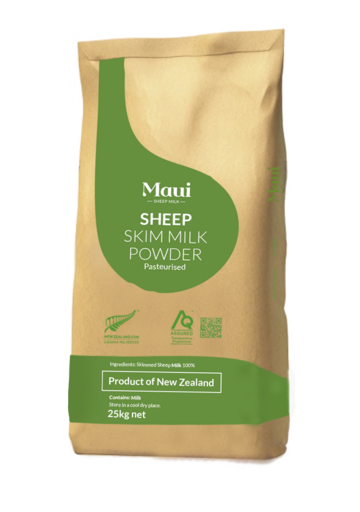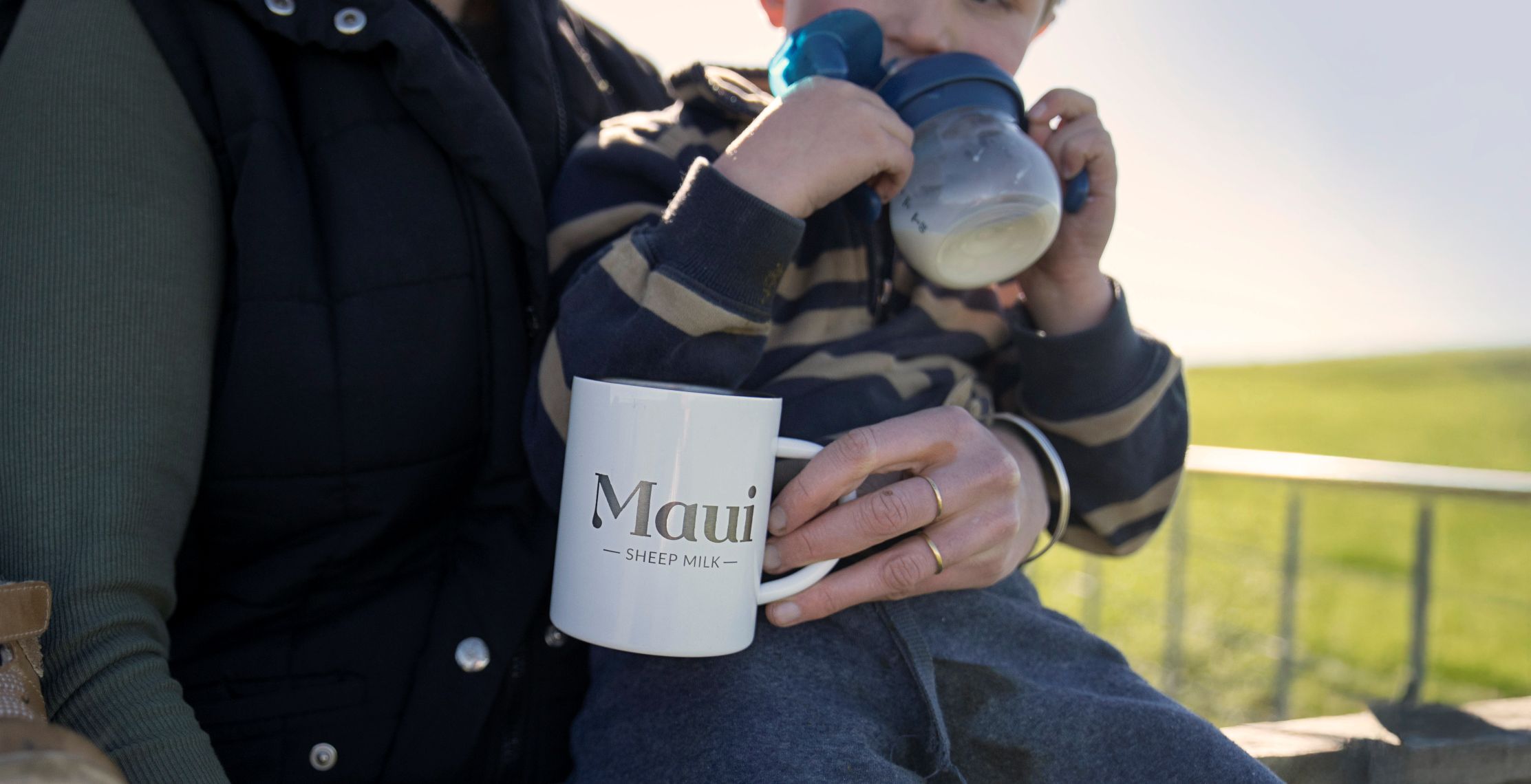
AQ Assured by AsureQuality, New Zealand's Government-owned food assurance company.
Maui Sheep Skim Milk Powder
25kg
PRODUCT ATTRIBUTES VERIFIED BY AQ ASSURED
- Certified grass-fed milk pool
- 100% pure NZ sheep milk
- A2-type milk
- Free range sheep
- Low GI (Glycaemic Index)
- High in calcium
- High in protein
- No additives
- Antibiotic free
- Halal certified
 Origin
Origin
Maui Sheep Skim Milk Powder is made from Maui’s certified grass-fed milk supply from free ranging sheep located on pasture-based farms across the North Island of New Zealand.

Certified Grass- Fed Milk Pool
Maui’s milk pool is certified grass-fed by Government owned AsureQuality, an independent Conformity Assessment Body (CAB), against the AsureQuality Grass-Fed Standard.
This certification independently verifies that Maui’s milk pool meets the requirements of the New Zealand Dairy Grass-Fed Administrative Standard.
Maui’s Southern Cross® sheep supplying the milk pool, free range outside throughout the year, grazing on grass and foraging crops as their main source of feed:
- Grass-fed feed types make up at least 90% of their diet.
- The sheep graze outside for an average of more than 340 days per year, 8 hours per day
A2-type milk
The raw milk used in the manufacture of Maui Sheep Milk Powder is sourced from Maui’s own unique Southern Cross® breed of sheep, which naturally produce the A2 β-casein type protein.
Independent laboratory analysis has confirmed that only the A2 β-casein type protein was observed in product testing.
(The level of A1 β-casein is below the limit of reporting for the analytical method used)
Pasture Raised, Pasture Fed
The farms supplying sheep milk to Maui Milk use a pastoral-based farming system without the use of indoor barns.
The sheep free range outside all year round where they graze on fresh grass and forage crops as their main food source.
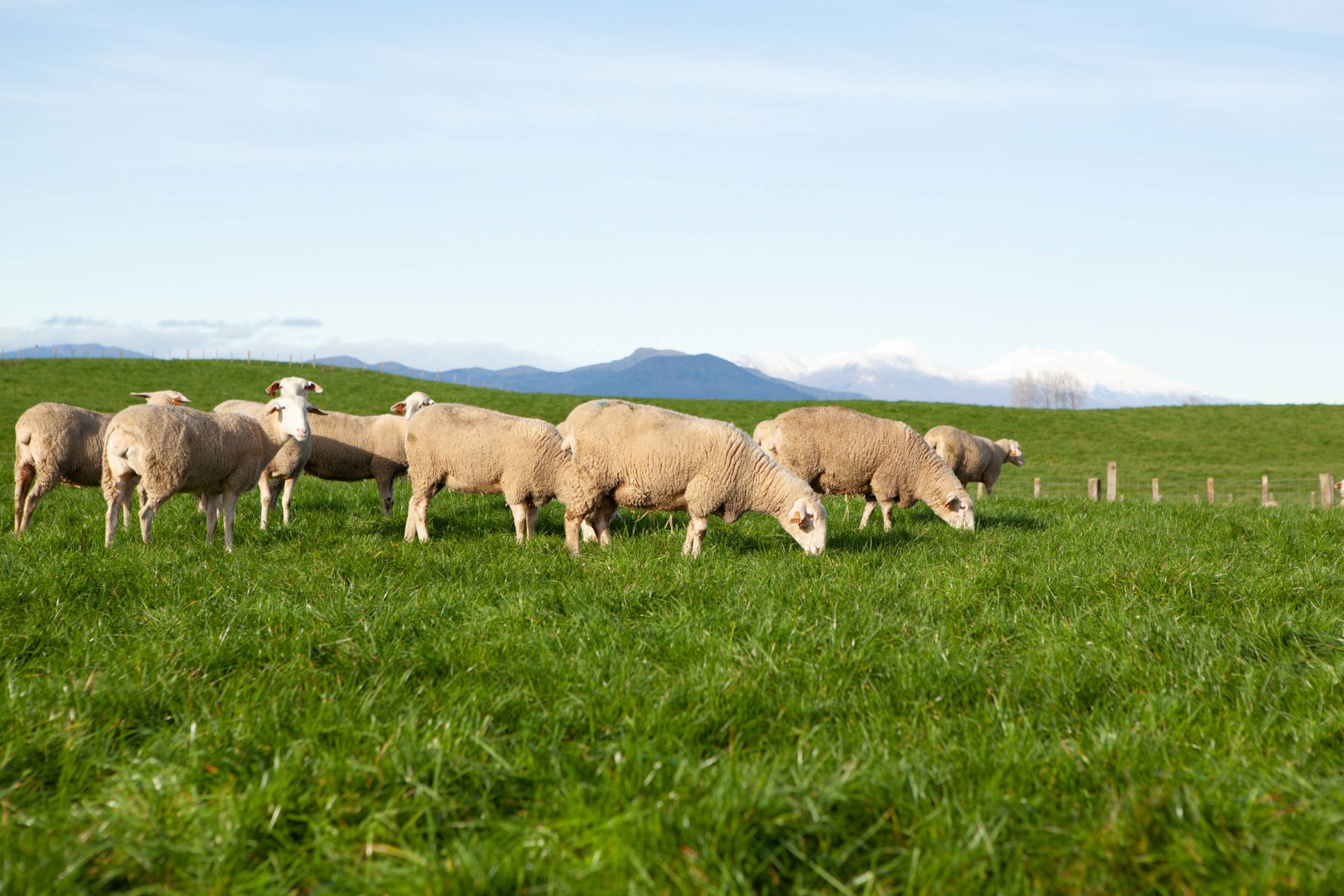
Maui Milk holds a NZ FernMark License (Licence No.100123) which verifies that the product has been made in New Zealand.
 Nutrition
Nutrition
Ingredients
100% Pure NZ Skimmed Sheep Milk
Maui Sheep Milk
Maui Sheep Skim Milk Powder is made from fresh skimmed sheep milk, that has been pasteurised, and evaporated before carefully spray drying without the use of preservatives, sugar, colouring or flavouring.
A recent New Zealand study suggests that sheep milk may be more readily digested than other milk sources.
Maui Sheep Skim Milk Powder is shelf stable for 24 months when unopened and stored under ambient conditions.
Low GI
The glycaemic index (GI) is a ranking system that measures how quickly digestible carbohydrates in a food raise blood glucose level compared to glucose.
Independently tested using internationally recognised methodology, confirms Maui Sheep Skim Milk Powder has a low GI.
Low-glycaemic index (GI) foods result in a slower and more gradual increase in blood glucose levels. Scientific evidence suggests that incorporating these foods into the diet may be linked with positive health outcomes.
Each single serve of 150mL is:
- High in Calcium
- Naturally high in protein (on average 8.0g/100mL)
- Contains all essential amino acids
- High in Vitamin B2 and B12
New Zealand Sheep Milk Nutritional Composition:
| Component | NZ Sheep Milk | Cow Milk |
| Average | ||
| Total Protein (%) | 6.2 | 3.3-3.9 |
| Fat/Lipids (%) | 6.7 | 4.6-5.3 |
| Calcium (mg/100mL) | 193 | 114 |
| Phosphorus (mg/100mL) | 157 | 87 |
| Magnesium (mg/100mL) | 20 | 7-12 |
| Vitamin B2 (ug/100mL) | 406 | 200 |
| Vitamin B12 (ug/100mL) | 0.68 | 0.27-0.7 |
Note. This data has been retrieved from Ag Research (n.d). New Zealand Sheep Milk Nutritional Composition.

 Safety & Quality
Safety & Quality
Laboratory Tested for Safety and Quality
Maui Milk skim sheep milk powder is tested for safety and quality, using both factory (in-house) and independent accredited laboratories.
Testing is undertaken at each step along the supply chain, from the raw milk on farm, during processing through to the final product, ensuring the product complies with NZ regulations and standards. Testing includes:
- Physical attributes
- Chemical analysis
- Microbial testing
- Contaminants monitoring
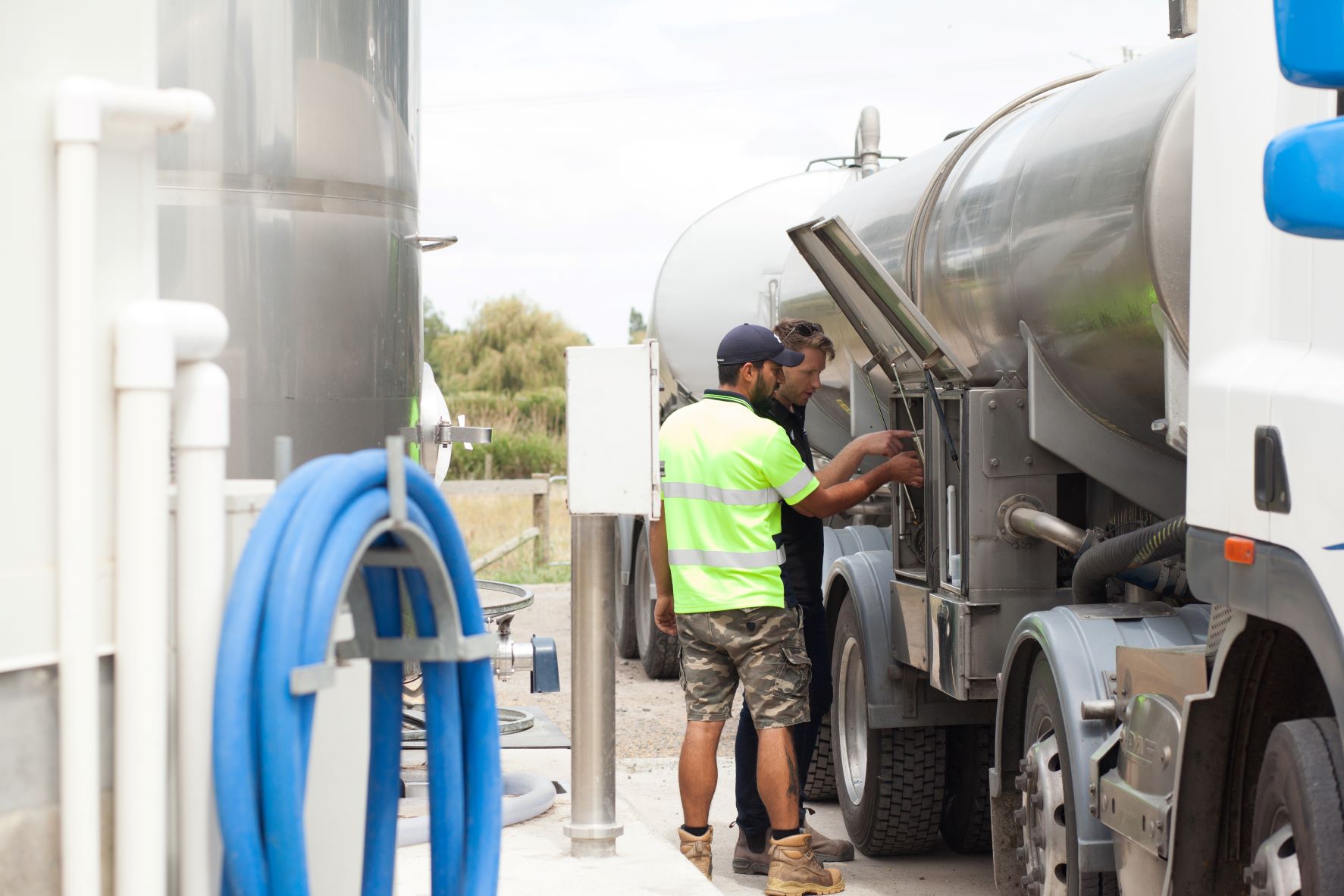
Produced Under New Zealand Government Regulations
New Zealand has Acts and Regulations to ensure all dairy products are safe for consumers and that manufacturers use fair and sustainable practices. All dairy products must comply with the Animal Products Act, 1999 and all milk suppliers must meet the New Zealand Animal Welfare standards.
Grass-Fed Certification
The Maui Milk supply is third party certified by AsureQuality against the AsureQuality Grass-Fed Standard, independent verification that the milk pool meets the requirements of the New Zealand Dairy Grass-Fed Administrative Standard.
Risk Management Programme
All supply farms, transporters, processing and storage facilities operate under a Risk Management Programme (RMP). They are routinely audited to demonstrate compliance against the requirements of their RMP
Supply Chain
There are systems in place throughout Maui Milk’s supply chain to ensure that high standards of safety and quality are being met.
Click on each icon to learn more.
The Farm
Farm Assurances
All milk is supplied from farms that have a verified Risk Management Plan (RMP) approved by the Ministry for Primary Industries (MPI) to ensure that the health and welfare of their sheep and the quality of their milk is maintained.
There are regular independent audits of each farm to ensure these requirements are being met.
- Each animal is uniquely identified using a numbered ear tag.
- Health checks and tests are regularly undertaken on sheep.
- Any feed supplements are checked to ensure they are palm kernel extract (PKE) and GMO-free.
- Records of milking are kept that include the date, time, quantity and temperature of collection, the temperature of the milk is continuously monitored.
- Milk is filtered and cooled on the farm to ensure compliance with industry standards, then stored on the farm for collection.
- Milk is collected from the farm using insulated tanker trucks.
- A sample of the raw milk is taken and independently tested for a range of microbial, physical and chemical tests against regulatory requirements.
- Milk is not accepted by the processing factory if it does not meet required specifications.
- Milk is transported to the milk processor which is located within a 165km radius from each farm
The Factory
Factory Assurances
The factory operates under a Risk Management Programme (RMP) as required by the Animal Products Act, 1999 and is Halal Certified.
- Samples of raw milk are tested to ensure quality and safety prior to further processing.
- The milk is kept in a segregated silo until drying.
- The raw milk is heat treated (pasteurised).
- The sheep milk is concentrated using an evaporator to lower the moisture content.
- The concentrated milk is passed into the spray drier where is it turned into a fine powder.
- The product is bulk packed into 25kg multiwall bags with polyethylene liners to maintain product quality.
- Each bag is coded for traceability.
- The finished product is laboratory tested to ensure compliance against specification. This includes chemical, microbial, heavy metals and physical tests.
Transport
The transport company has a current Risk Management Programme (RMP) registered with the New Zealand Ministry for Primary Industries (MPI) before it can freight any dairy products.
This is a requirement of the Animal Products Act 1999. The transport company is audited by approved independent auditors to ensure standards are being met and maintained.
Shipping
The shipping company ensures that the products are accompanied by all export documents that are required by the importing country including:
- Customs documents
- Official export certificates (issued by the NZ Ministry of Primary Industries, to ensure the product complies with NZ Regulations)
- Certificates of analysis (containing laboratory results from chemical, microbial, contaminant and physical testing)
All documentation required by the importing country must be completed and approved before it can be loaded onto the ship.
 Environmental
Environmental
Certified Grass-Fed Milk Supply
Maui’s unique Southern Cross® dairy sheep are ideally suited to grass-fed, pasture-based farming, grazing freely outdoors year-round, well-adapted to an environment where they can express their natural behaviours.
Certified Grass-Fed, Maui’s milk supply has been independently verified as meeting the requirements of the New Zealand Dairy Grass-Fed Administrative Standard.
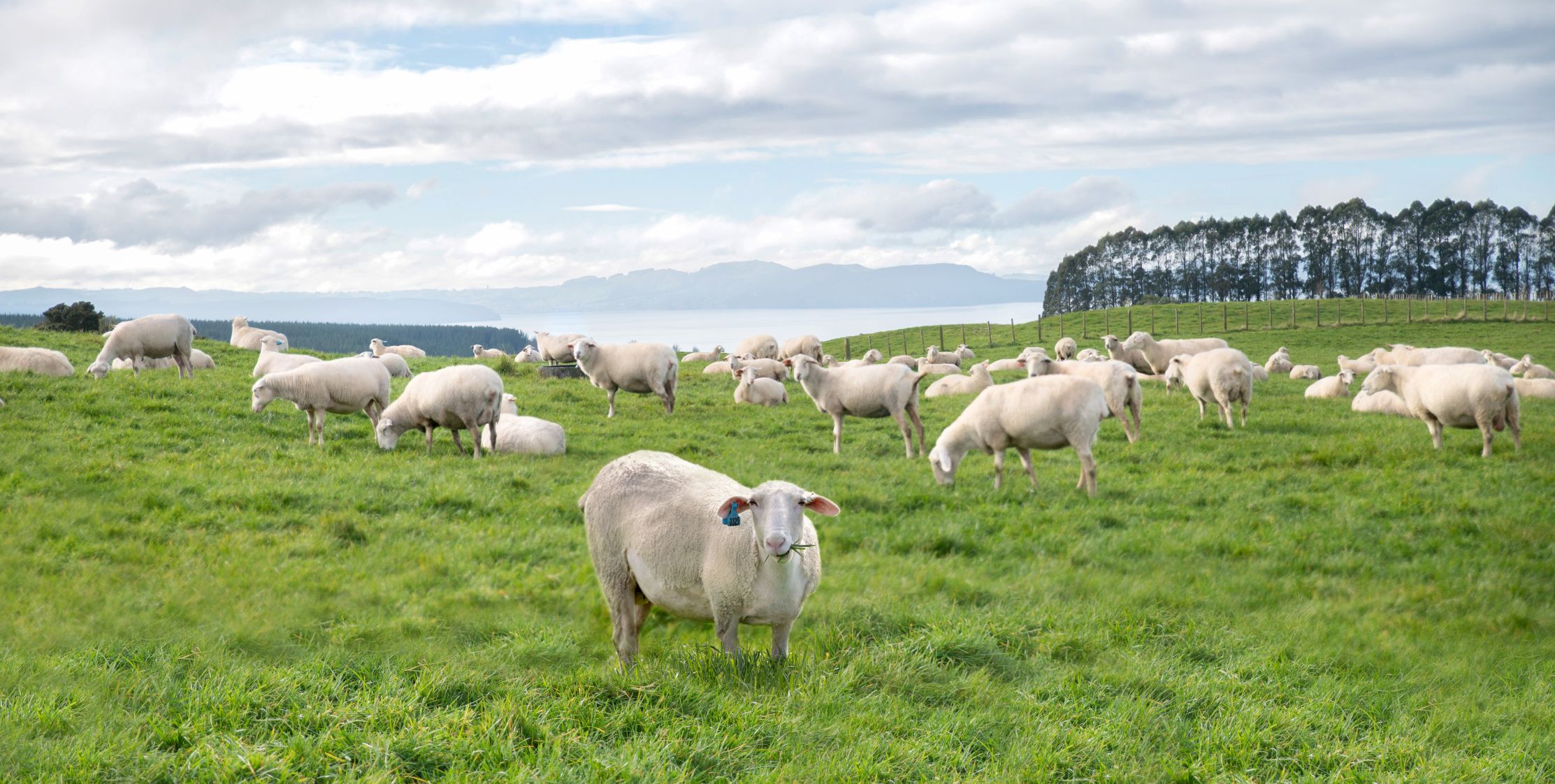
Exclusive Milk Supply
The farms supplying the sheep milk do so exclusively using a pastoral- based farming system where the dairy sheep are free range and pasture fed.
To ensure animal health is maintained Maui Milk’s sheep milk supply farms seek support from professional veterinarians and must comply with the requirements stated in the New Zealand Animal Welfare Act 1999, which is governed by the Ministry for Primary Industries.
Messages from Maui Milk
From the place sheep call home
At Maui Milk, we believe that if there’s one place sheep would truly call home, it’s New Zealand, a country with a temperate climate and vast landscapes that are ideal for grass-fed, pasture-based farming.
Since our establishment in 2014, we've been driven by a simple belief: New Zealand has all the ingredients necessary to create a better, more nutritious, and sustainable dairy product. In 2017, we embraced this vision and developed a unique sheep breed which we proudly call Southern Cross™ dairy sheep. This breed is perfectly tailored to the New Zealand environment, and our Southern Cross® Ewes consistently deliver high yields of the most densely nutritious milk possible for our customers.
We source our independently certified grass-fed milk supply, exclusively from our farm network located across the North Island of New Zealand. This ensures we meet the highest quality standards. At Maui Milk, we take pride in our commitment to sustainability and our dedication to maintaining quality throughout the supply chain and in our purpose-built processing facility.
We are proud to offer a range of premium dairy products that prioritise the well-being of our animals, environment, and people.
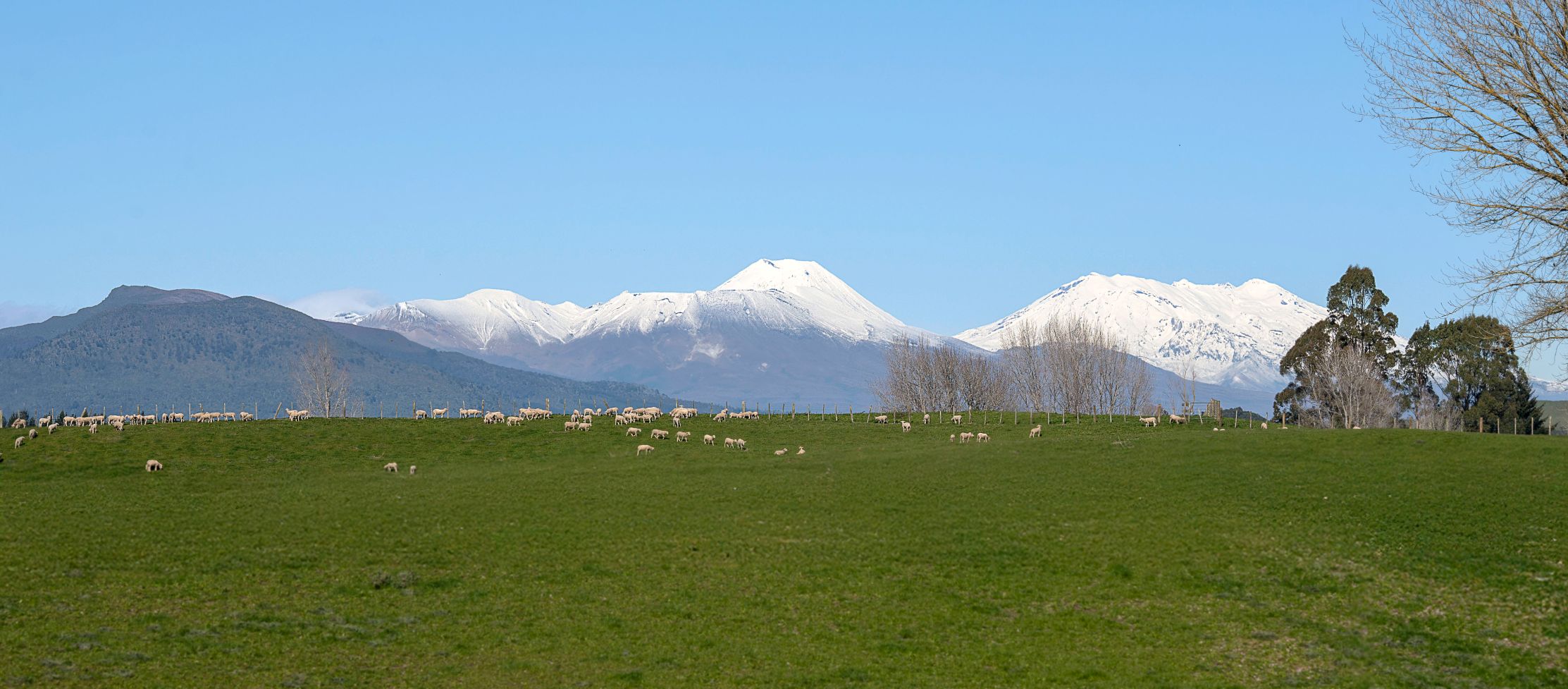
Our Supermilk
Sheep milk is renowned for its exceptional nutritional profile, making it a stand-out choice among dairy products.
Sheep milk is naturally rich in essential nutrients, including A2-βtype high-quality proteins, vitamins, and minerals and it tastes great too!
Its remarkable concentration of nutrients makes it an ideal choice for those looking to enhance their diet with top-tier nutrition.
Join us on this journey and experience the benefits of Maui Sheep Milk. We’re here to transform the world of dairy, one nutritious sip at a time.

